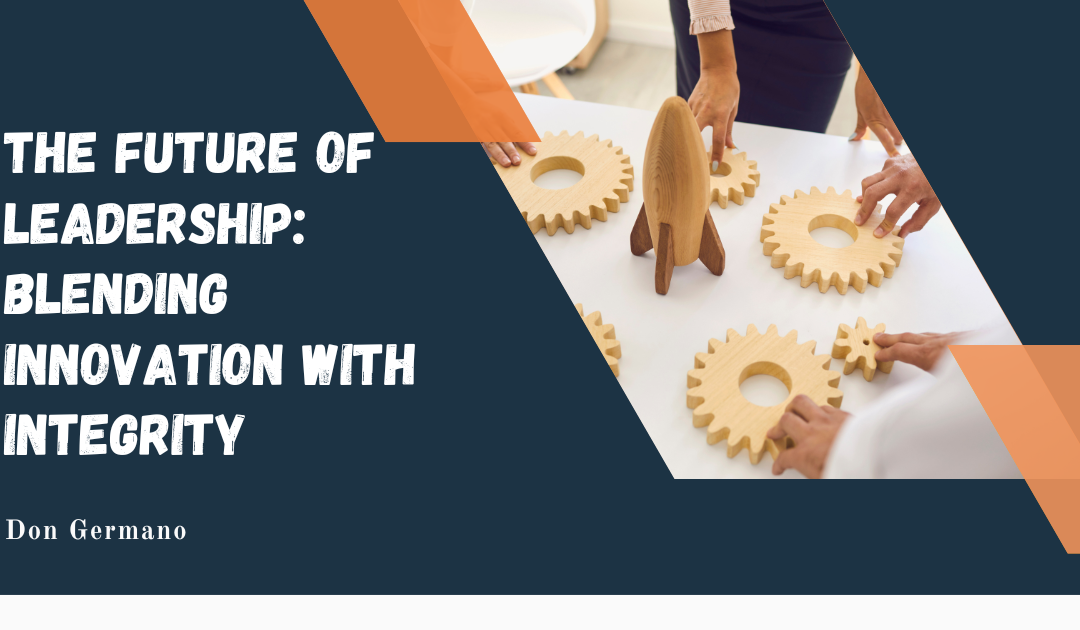Leadership is evolving. In a world shaped by rapid technological change, global uncertainty, and shifting values, the qualities that define effective leadership are being reimagined. Today’s leaders are expected to be more than just visionaries or decision-makers—they must be empathetic, transparent, and aligned with the values of the people they lead. The future of leadership lies in a powerful blend of innovation and integrity.
Innovation has become a central pillar of leadership in the modern era. As businesses face increasingly complex challenges and opportunities, the ability to adapt, think creatively, and embrace change is essential. Leaders are no longer just managing the status quo—they’re disrupting it. They must anticipate trends, experiment with new ideas, and inspire their teams to push boundaries and break molds.
But innovation alone isn’t enough. In fact, unchecked innovation—without a foundation of ethics and accountability—can lead to serious consequences. That’s where integrity steps in. Integrity is the moral compass that guides decision-making, builds trust, and ensures that progress is rooted in principles. A leader with integrity acts with honesty, keeps their promises, and leads with fairness—even when it’s difficult or unpopular.
Blending innovation with integrity creates a leadership style that is both dynamic and dependable. It means being open to new ideas while staying grounded in core values. It means encouraging bold thinking without compromising ethical standards. This balance is what separates short-term wins from long-term success.
One of the most significant shifts in leadership today is the emphasis on emotional intelligence. Leaders are expected to be human, not just strategic. They must be able to listen, understand different perspectives, and respond with empathy. This human-centered approach fosters a culture of inclusion, psychological safety, and mutual respect. When employees feel seen and valued, they are more likely to contribute ideas, take risks, and invest in the mission.
Authenticity is another crucial trait in the future of leadership. People are looking for leaders who are real—who communicate openly, admit mistakes, and lead by example. Authentic leaders don’t pretend to have all the answers. Instead, they surround themselves with smart people, ask the right questions, and remain curious and humble.
Incorporating innovation also means embracing diversity of thought. The best ideas often come from unexpected places. Leaders who prioritize diverse voices and perspectives will build stronger, more resilient teams. They create environments where everyone feels empowered to contribute, challenge assumptions, and innovate with confidence.
Technology, of course, plays a key role in shaping leadership today. From artificial intelligence to remote collaboration tools, leaders must be fluent in digital transformation. But more importantly, they must be able to guide their organizations through change while keeping people at the center. Digital innovation must serve a greater purpose—enhancing lives, improving experiences, and driving impact.
Sustainable leadership is also becoming a defining trait. Leaders must now consider the long-term consequences of their decisions on society, the environment, and future generations. This includes everything from reducing a company’s carbon footprint to supporting ethical labor practices. Businesses are no longer judged only by their bottom line, but by their contributions to a better world.
As we look to the future, the most successful leaders will be those who can bridge the gap between head and heart. They will use data to inform decisions and intuition to guide them. They will act boldly when opportunity strikes and stand firm when values are tested. And through it all, they will build organizations that not only grow, but thrive—with purpose, empathy, and vision.
Leadership isn’t just about where you’re going—it’s about how you get there and who you take with you. By blending innovation with integrity, the leaders of tomorrow will build teams that are inspired, organizations that are resilient, and a world that is better for it.

